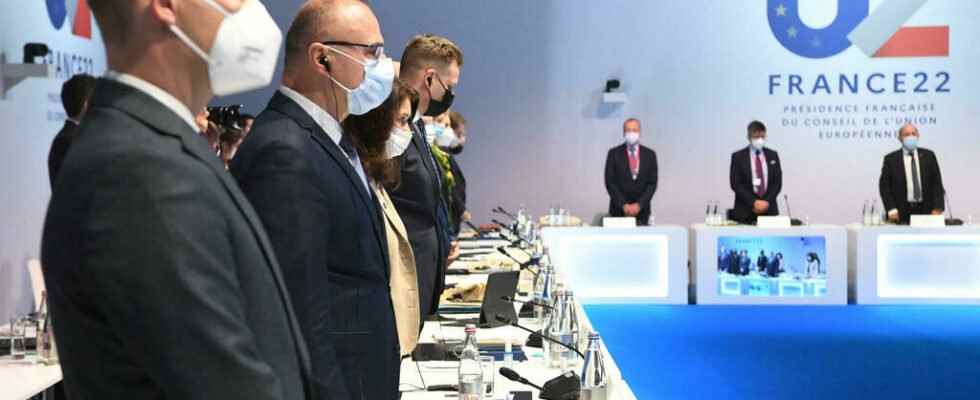In European jargon, it’s called a Gymnich, named after the first town where such a meeting was held. The 27 European Foreign Ministers meet informally every six months in the country holding the rotating presidency. Informal because no official decision can be taken, only broad guidelines. These Thursday and Friday, they are in Brest and seek to bring out the strategic autonomy of the European Union.
The meeting of the Union’s heads of diplomacy was preceded by a working session with the 27 Defense Ministers of the Member States.
The situation in Mali and the tensions around Ukraine are at the center of the discussions of the Ministers of Foreign Affairs during these two days.
Europeans do not intend to follow the line of obliteration
For Mali, their task is facilitated by the leading role assumed by the Economic Community of West African States (ECOWAS), whose choices they have chosen to follow and support.
For Ukraine, they want to fix the role of the EU and reject the accusations of a backward position in the resolution of the crisis.
The Europeans reaffirmed that they would not give in to the demands of Russia, which would like a limitation of the role and scope of NATO.
We are in perfect agreement with the United States, affirms in essence the head of European diplomacy Josep Borrell: “ It is understood that nothing concerning the security and stability of Europe will be achieved without us. “
Despite what has been said in recent days, we are in constant contact with the United States. The EU is absolutely not left out. On the contrary, we are continuously participating in the discussions through our relationship with the United States, and this will continue, because we have the assurance that nothing will be decided concerning European security without significant coordination and participation by Europeans.
This is the whole European defense architecture in question
The prospect of a resumption of France-Germany-Russia-Ukraine negotiations (“Normandy format”) is once again on the table, according to the Europeans.
The Russian attitude, which calls into question the security system in Europe, pushes the Twenty-Seven to take security and defense issues seriously.
The current crises will therefore finally lead to the creation of this Europe of defense which has been playing the Arlésiennes for thirty years, since the wars of Yugoslavia, observes our correspondent in Brussels, Pierre Benazet.
The challenge goes beyond Ukraine, confirms Josep Borrell. Behind the current discussions with NATO, the United States, but also the OSCE, it is the whole European defense architecture that is in question.
“The principle of a rapid intervention force” still in contention
The ministers must now begin in Brest the final work for the “strategic compass”, the white paper which will outline the orientations for the years to come and should be adopted in March.
Josep Borrell was optimistic on Thursday, including on the aspect of a rapid intervention force of 5,000 men.
” The consensus is taking shape, the text is changing, but the principle of a rapid intervention force is not called into question. Faced with the events we are currently witnessing, the motivation is even stronger to develop such a capacity “, he assures.
The discussions are going much better than expected, even confided the high representative. And if the European Council in March adopts the strategic compass, Josep Borrell promises a rapid implementation of this military intervention force.
►Read also: OSCE meeting on Ukraine: no slammed door, a sequence ended
